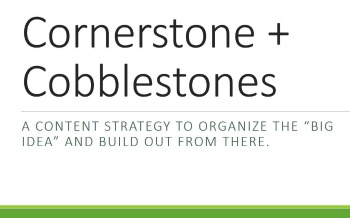How do you search for information?
I’ve been thinking a lot lately about search.
I’ve been reading about search engines and filter bubbles (hint: Bing is better at filtering out alternative facts), I’ve played less with Google, and tested incognito mode a few times. I’m fascinated by the implications of voice search. And I’ve added YouTube more and more into the mix.
That’s right: YouTube. YouTube has so much video content uploaded by the minute, hour, and day that the company no longer posts general statistics on video content. What I do know is that YouTube has over 1 billion users, including thousands of media outlets, entertainment companies, and others publishing copyrighted video content. And I can’t find the statistics right now, but I have previously seen data suggesting YouTube is the 2nd largest search engine after Google.
In fact, it was one of the search engines I prioritized while doing some client research recently around infection prevention.
Search mojo powers the Web.

Yes, it started with 10 blue links. (Well, it started with Archie and Alta Vista, but Google perfected early search.) The idea was to return only the top relevant, ranked sites. Then the Internet got bigger, and the question became: relevant to whom?
Search has changed a lot.
Arguably, search has become less about words and more about meaning.
You need to think search + content.
Context is everything.
You can search and find me. Think about that for a moment. (Okay, a tiny moment.) I won’t get my business to rank in a search for “DC” and “marketing” (too expensive and too much work), but you can search for Steigman Communications. You can search for me. You can search for you too.
Look at the results.
They’re all about content and context. What you’re publishing on your site. What you’re saying across the Web. What your customers (members, clients, patients, and so forth) are saying about you.
Think with Google has a terrific new article on 7 ways customers find what they’re looking for. The post covers strategies that businesses should consider, such as ratings, complementary categories, and being deliberate about where you hang out.
Read the article and recognize that search starts with you. What’s your content strategy to get found, engage, and close the deal?
On the road by Etienne Desclides (Unsplash).



